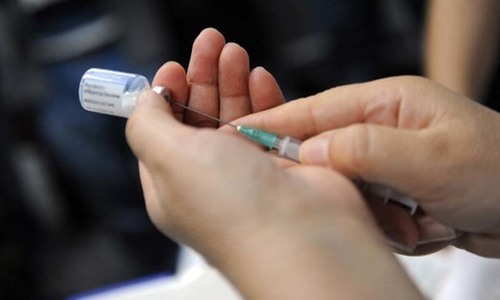ISLAMABAD: After Sindh and Punjab, Islamabad Capital Territory (ICT) and Azad Jammu and Kashmir have achieved the elimination of maternal and neonatal tetanus (MNT), taking Pakistan closer to interrupting the transmission of this life-threatening disease for mothers and newborns nationwide.
The validations were confirmed by the World Health Organisation (WHO) following a weeklong final review led by WHO and Unicef at the request of the federal government.
Around 80 per cent of Pakistan’s population (190 million people) now live in areas where the spread of neonatal tetanus remains under controlled limits — less than one case of tetanus per 1,000 live births. Sindh recently achieved elimination in December 2024, while Punjab in 2016.
“This milestone not only reflects the strength of our immunisation strategies and the diligence of our frontline workers but also serves as a benchmark for the entire nation,” said Director General, Ministry of National Health Services, and Director of the Federal Directorate of Immunisation (FDI) Dr Shabana Saleem.
Earlier Sindh and Punjab had eradicated MNT; official says this reflects strength of immunisation strategies
In 2024 alone, WHO and Unicef supported the vaccination of 5.4 million pregnant women and women of childbearing age across Pakistan.
“This achievement is testament to the commitment of the Pakistani authorities and health workforce, as well as the communities, to save lives and protect every mother and child from a preventable disease. To achieve prosperity and sustainable development, every country needs healthy mothers and newborns. WHO will stand by Pakistan and its partners to achieve the elimination of neonatal tetanus across the country,” said WHO Representative in Pakistan Dr Dapeng Luo.
Despite progress, Pakistan remains among the 10 countries worldwide that have yet to eliminate MNT.
In 2024, a total of 322 cases and six deaths were reported across the country, although WHO experts estimate that only 30pc of cases are notified to the authorities.
“This milestone is an important step forward for maternal and child health in Pakistan. No mother or child should die from this preventable disease. Unicef will continue to support the government of Pakistan’s efforts to fully eliminate this disease by strengthening routine immunisation and ensuring access to safe childbirth practices, so every child can survive and thrive,” said Unicef Representative in Pakistan Abdullah Fadil.
He said Unicef and WHO will stand by Pakistan to accelerate action and support the remaining provinces and regions — Balochistan, Khyber Pakhtunkhwa and Gilgit-Baltistan — to achieve the elimination target by 2028.
Published in Dawn, March 21st, 2025















































